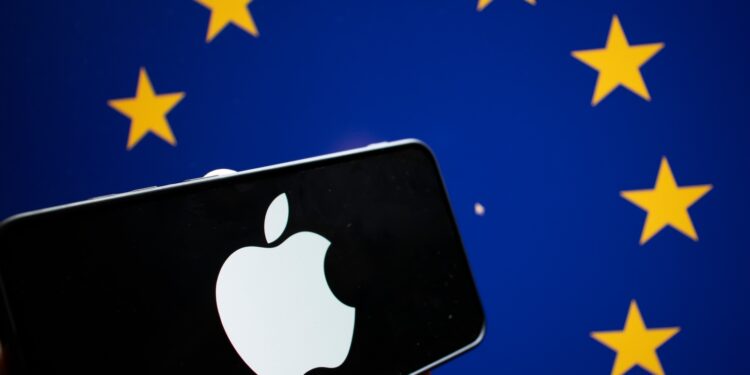Apple must reposition itself in Europe. The EU Commission has ruled that the company must change certain business practices in the App Store. These primarily concern the high fees and restrictions on the use of external payment services. Apple has until the end of June to implement the requirements. This could mean real change for developers and users. It's about more transparency, freedom of choice—and how far Apple is willing to go to maintain its influence.
If you've ever been in an app and wondered why you can't just pay directly on the provider's website, it's often Apple's fault. The company earns money from every transaction in the App Store. Apple takes up to 30 percent for purchases, subscriptions, and in-app payments. This criticism is nothing new. Apple has already had to respond in the US. Now the EU is following suit – and setting clear requirements. It's about fair conditions in the digital market and the question of whether Apple is exploiting its dominant position to the detriment of others.
EU forces Apple to change
The EU's decision is directly related to the Digital Markets Act (DMA). This requires so-called gatekeepers – companies with significant market power – to be more open and transparent. According to the EU, Apple clearly falls under this category. Therefore, the company will no longer be allowed to prevent app providers from linking to external payment services. In concrete terms, this means: developers are allowed to include links to other payment platforms in their apps. Apple is not allowed to block these links or deter them with warnings. This has been the case until now. Developers who linked to external sites had to expect restrictive regulations. In many cases, Apple even demanded a commission of 27 percent if the purchase was made outside of the app – for example, in the browser. Automatically renewing subscriptions were also affected. For the EU, this is a clear violation of the DMA.
- Particularly critical: Apple failed to provide a comprehensible explanation as to why external payment providers were considered insecure. The Commission accuses the company of failing to provide any relevant information on this for over a year.
Apple has four weeks to implement
The deadline is running. Apple must stop the contested measures by the end of June at the latest. Otherwise, it faces daily fines. The EU emphasizes that communication between app providers and users must be non-discriminatory. This means no restrictions, no fees for simple notifications, and no deterrent tactics. For Apple, this represents a severe disruption to its existing business model. Billions of dollars are at stake, earned through commissions.
A possible loophole remains
But Apple isn't completely defenseless. The DMA contains an exception: It's permissible to charge a reasonable, one-time fee if there was no prior business relationship between the app provider and the user. This leaves room for interpretation. Initial assessments suggest that this is precisely where Apple will start. The idea: a new fee model that is nominally lower than the current 27 percent – perhaps 26.5 percent – but so complex that it's almost impossible to understand in practice. The EU is familiar with this strategy. Should Apple attempt to further circumvent the rules, it faces new proceedings. Repeated violations can lead to permanently high fines. Nevertheless, it's likely that Apple will initially take this route. Experience from the US shows that the company often does everything in its power to delay changes – even going to court if necessary.
EU sets clear deadline – Apple must react
The EU's decision puts Apple under pressure. Certain business practices, particularly those related to external payment services, must be adjusted by the end of June. The company's previous measures, including deterrent attempts and high fees even for external purchases, are deemed incompatible with the Digital Markets Act. Whether and how Apple will implement the requirements remains to be seen. It is possible that the company will use legal loopholes to introduce new fee models. In any case, the development is likely to remain the focus of competition watchdogs and market observers in the coming months. (Image: Shutterstock / daily_creativity)
- Apple brings Tap to Pay to 18 new European countries
- From 20 June: EU label becomes mandatory for all mobile devices
- Cook skips Middle East trip – Trump threatens Apple with tariffs





